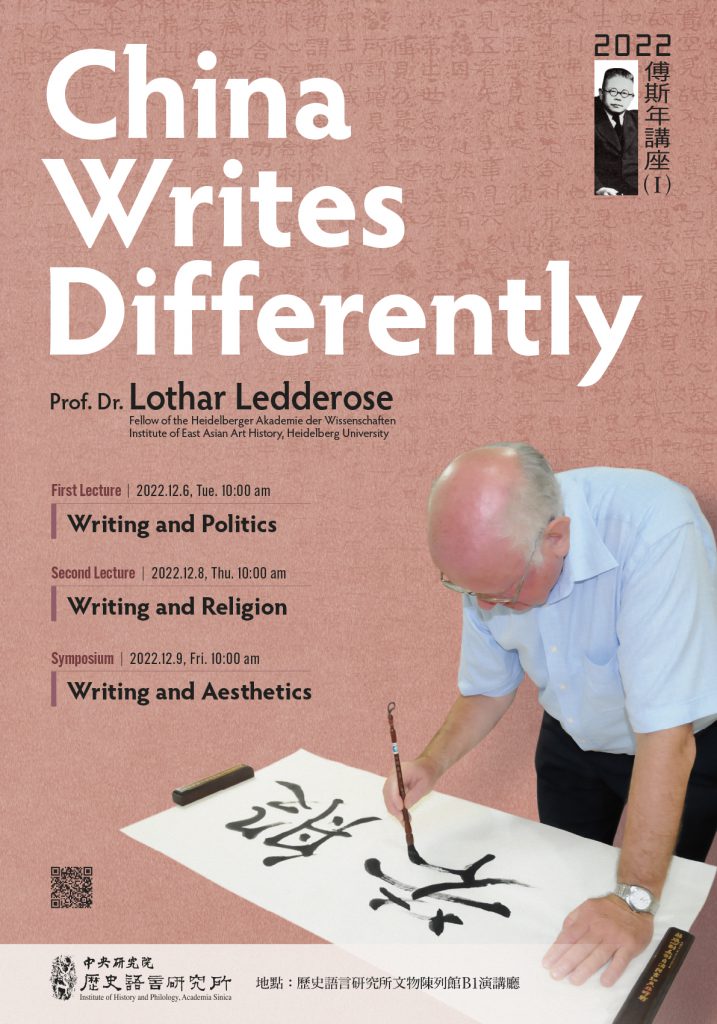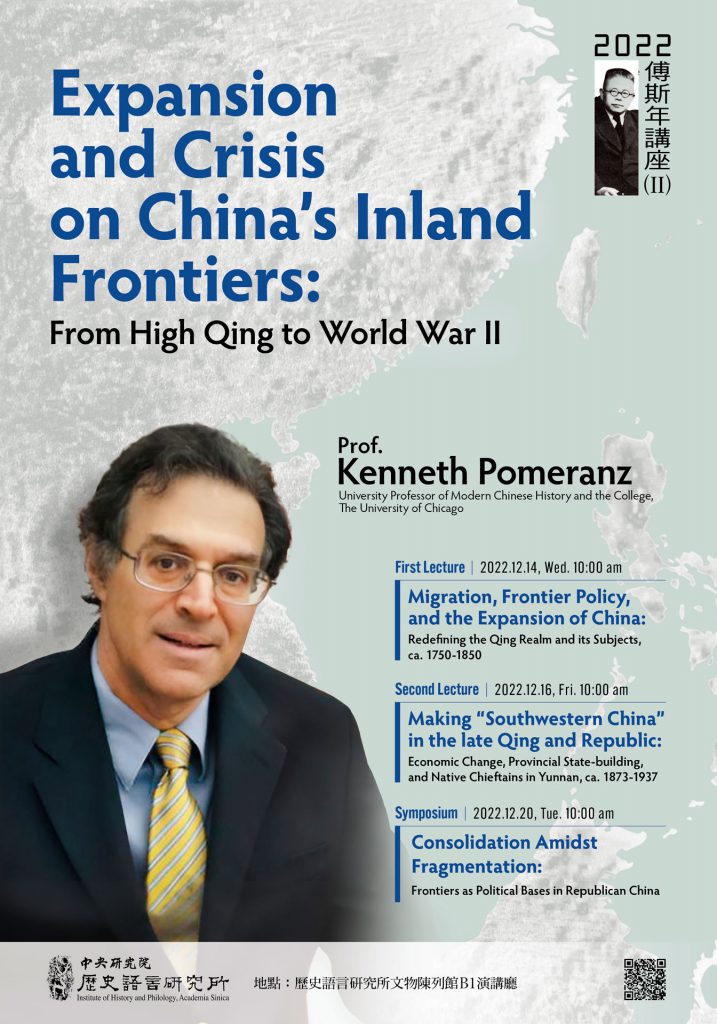Professor Lothar Ledderose is one the most distinguished Western Sinologists in the field of Chinese art history. In 1976, Prof. Ledderose was awarded professorship in East Asian art history at Heidelberg University, was elected as chair of the department, and became the director of the then graduate school concerning art history. In 1978, he then became the head of the Faculty of Philosophy and History. Regarding his remarkable CV, Prof. Ledderose’s most representative works include Mi Fu and the Classical Tradition of Chinese Calligraphy (1979), Orchideen und Felsen: Chinesische Bilder im Museum für Ostasiatische Kunst Berlin (1998), and Ten Thousand Things: Module and Mass Production in Chinese Art (2000), the latter of which was awarded the 2002 Joseph Levenson Book Prize. Furthermore, he was awarded the 2005 Balzan Prize for his outstanding contributions to studies on stele inscriptions and calligraphy, among other fields. In recent years, he has been working on the long-term research project “Buddhist Stone Sutras in China” (中國佛教石經) at the Heidelberg Academy of Sciences and Humanities as well as serving as editor of a bilingual series of the same name in English and Chinese.
Professor Kenneth Pomeranz is a fellow of the American Academy of Arts and Sciences and of the British Academy, has served as president of the American Historical Association (AHA), and is currently a university professor in the Department of History at The University of Chicago. Prof. Pomeranz’s primary areas of research are social and economic history of China and Southeast Asia, and he is also concerned with issues of state formation, imperialism, religion, and gender, among others. Regarding his remarkable CV, Prof. Pomeranz’s most important works include The Making of a Hinterland: State, Society, and Economy in Inland North China, 1853–1937 (1993) and The Great Divergence: China, Europe, and the Making of the Modern World Economy (2000), which both won the John K. Fairbank Prize from the AHA in 1994 and 2000, respectively: the only scholar to have won the award twice.
Fu Ssu-nien Lecture 1
Theme:China Writes Differently
Speaker:Prof. Dr. Lothar Ledderose (Fellow of the Heidelberger Akademie der Wissenschaften/ Institute of East Asian Art History, Heidelberg University)
Topic:Writing and Politics
Time:10:00 am, Tuesday, December 6, 2022
Topic:Writing and Religion
Time:10:00 am, Thursday, December 8, 2022
Topic:Writing and Aesthetics
Time:10:00 am, Friday, December 9, 2022
Venue:B1 Conference Room, Museum of the Institute of History and Philology
Note:The talk will be given in English. Registration is not required.

Fu Ssu-nien Lecture 2
Theme: Expansion and Crisis on China’s Inland Frontiers: From High Qing to World War II
Speaker: Professor Kenneth Pomeranz (University Professor of Modern Chinese History and the College, the University of Chicago)
Topic: Migration, Frontier Policy, and the Expansion of China: Redefining the Qing Realm and its Subjects, ca. 1750-1850 (Before the lecture, the “Fu Ssu-nien Scholarship” will be presented.)
Time: 10:00 am, Wednesday, December 14, 2022
Topic: Making “Southwestern China” in the late Qing and Republic: Economic Change, Provincial State-building, and Native Chieftains in Yunnan, ca. 1873-1937
Time: 10:00 am, Friday, December 16, 2022
Topic: Consolidation Amidst Fragmentation: Frontiers as Political Bases in Republican China
Time: 10:00 am, Tuesday, December 20, 2022
Venue: B1 Conference Room, Museum of the Institute of History and Philology
Note: The talk will be given in English. Registration is not required.

